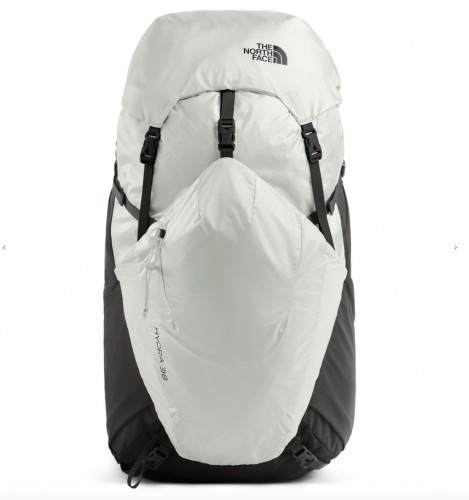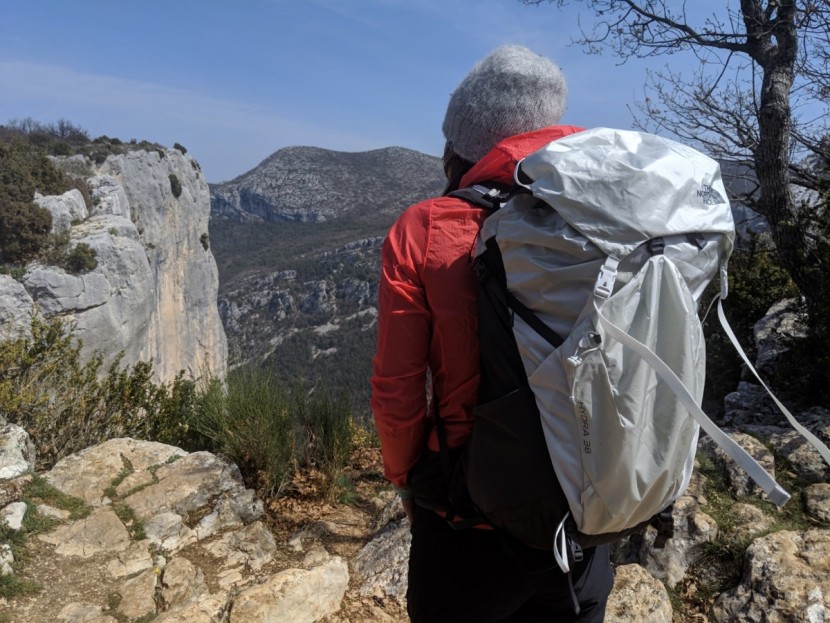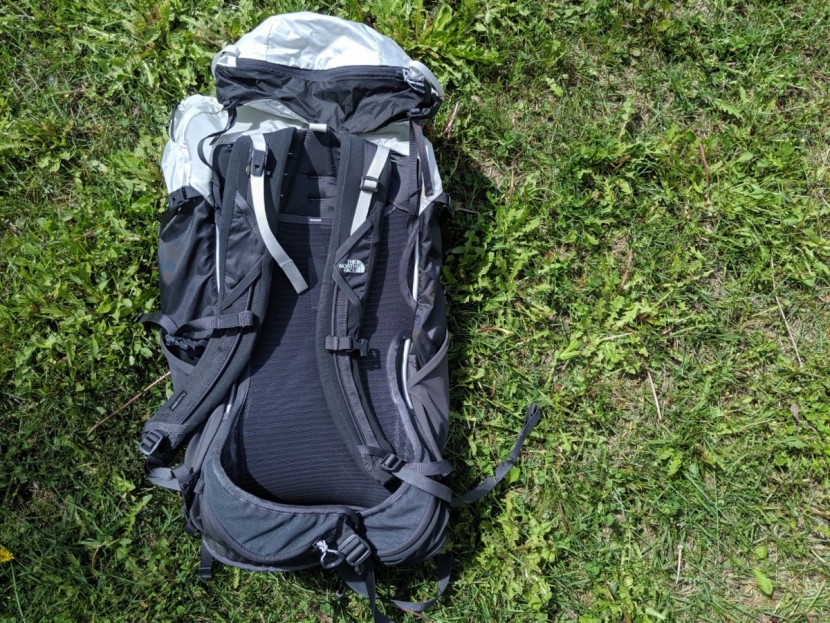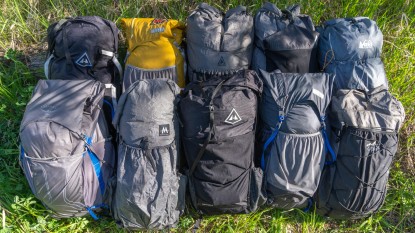The North Face Hydra 38 Review
Our Verdict
Our Analysis and Test Results
Weight-to-Volume Ratio
Its measured weight places the Hydra 38 alongside packs like the Hyperlite Mountain Gear 3400 55 and, to an extent, the ULA Ohm 2.0. The Hydra weighs in at 34.6 ounces, with no change between the pack's total weight and its stripped weight.
Both the Hydra and The North Face Phantom 38 receive low scores in this metric because their weight is fairly high relative to their carrying capacity. This means that the weight-to-volume ratio is much higher than the average ultralight pack. That said, they are still relatively lightweight, so if capacity is not as much of a concern, these two packs will still provide a relatively lightweight carry.
Total weight with all modular components = 2 lb 2.6oz
Pack stripped of components =2 lb 2.6oz
Lid = na
Total Volume = 36 L
Main Bag = 24 L
Pockets = 8 L
Lid = 4 L
Load Carrying Comfort
The Hydra has a full aluminum frame, suspension system, and trampoline mesh back panel, making it fairly substantial in terms of support. The Dyno Lift System that makes up the suspension is easy to adjust and lifts the load high off your hips. What we didn't like about this set-up was the lack of versatility that comes with this intricate structure. We discovered the Hydra was uncomfortable with less than 20 pounds in it, as the suspension system and hip belt are overbuilt for lighter loads. The North Face Phantom 38 was much more adjustable and carried a wide range of loads comfortably.
Features
The Hydra 38 has a limited feature set that is reminiscent of the Osprey Exos 48. The Hydra has a large stuff pocket on the outside with two fine mesh water bottle pockets on each side; like the updated Exos, the Hydra's pockets are made of either a fine, durable mesh (the side pockets) or durable nylon (the rear stash pocket). The downside to these durable pockets is that they lack stretch. Many ultralight packs use a stretchy mesh material for these outer stow pockets, which greatly increases their overall carrying capacity. The Gossamer Mariposa and the Gossamer Gorilla both have this style pocket.
The Hydra also has two waist pockets, which are fairly small in capacity. The lid of the pack has a capacity of six liters and cannot be removed. These pockets are the main event in terms of features on this fairly simple pack.
Adaptability
The Hydra 38 lacks adaptability, as we found no way to slim down the pack from its original 34.6-ounce weight. The lid is a pain to remove, and we would not recommend attempting. The frame and waist belt are integrated into the overall design of the pack, making them impossible to remove. We found this to be a detraction from the pack since it limits the uses.
Durability
The Hydra impressed us during our three-month test period. This pack, though lighter than The North Face Phantom 38, is almost as durable. The construction of the Hydra is burlier, with its aluminum frame plus its reinforced shoulder straps and adjustment points. The nylon “beaver tail” pockets also add to the durability. Like the updated Exos, the Hydra gets points here because nylon outer pockets stand up to the wear and tear of the trail compared to their stretchy mesh counterparts.
Best Application
The Hydra is best used for overnights or weekend trips; it has a relatively small capacity, which means it's ideal for shorter trips or experienced packers. Since it doesn't adjust and is a bit ill-fitting when partially full, the Hydra only functions as a day pack if it has at least a 15-pound load in it.
Value
With a price tag of $170, the Hydra is a decently affordable option for a lightweight, small capacity pack. Comparable in design to the Osprey Exos 48, the Hydra is smaller and also a bit less expensive (the Exos costs $200 online). The Hydra and The North Face Phantom 38 both cost $170; after testing both packs side by side, we were pleased with their performance. The Phantom is more versatile in our view, increasing its value slightly over the Hydra.
Conclusion
The North Face Hydra 38 is a lightweight option for folks who are set on having a full-suspension pack without too much added bulk. The Hydra carries 20 to 30 pounds comfortably but lacks the adjustability that is typical of many ultralight packs. We felt that this detracted from the pack since it limited its use. With its reasonable price tag and durable design, the Hydra is a decent choice for those looking for a supportive, lightweight weekend pack.











